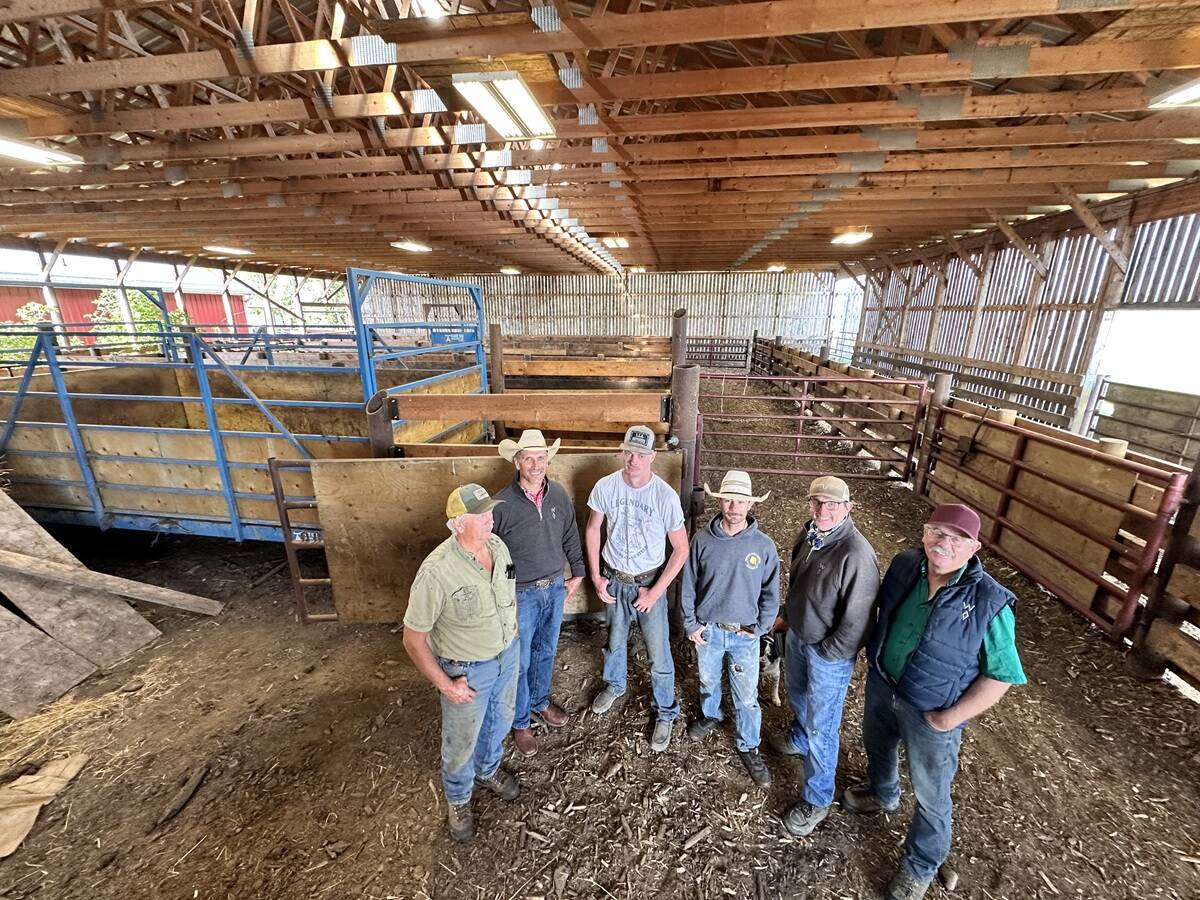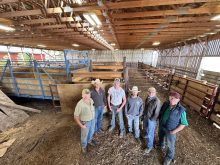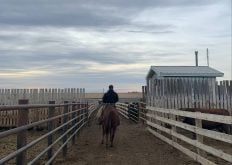Communicating about difficult topics is something all of us struggle with, and one of those difficult topics is finances. Many studies cite finances as one of the top stressors in relationships. Those of us in agriculture are not immune to this challenge.
“Emotion is definitely number one of the barriers to farmers talking about finances. This emotion is often fear-based — afraid to be judged or afraid to open the books and let their guard down,” says Trish Tetz, business development manager for agriculture for BMO in Alberta.
She says it often breaks down into two scenarios. “The first is that the operation is highly profitable and there is concern that the children will want higher pay, or more purchases. The second one is not wanting to share how poor the financial performance of the operation has been, for whatever reason.
Read Also

Farm families work together to graze cropland with cattle in the fall
These Alberta farm families have separate operations, but work together to manage their land
“They may also feel inadequate for not having the base financial knowledge,” she adds.
Understanding the financial statements and ratios the financiers use is an important addition to your knowledge base. Yet, people differ in their skill sets and affinities and not everyone is a numbers person. But basic financial knowledge is essential. Adopting a growth mindset can shift the focus from what you don’t know to what you can learn.
Tetz suggests remembering that your banker and accountant are there to help you. “We often talk about having a good relationship with them. Remember, they are not gatekeepers but should be used as advisors.”
She goes on to say the modern banker is there to help you better understand financial statements, wills and succession plans. And all the chartered financial institutions have in-house resources and experts to assist you.
In the financial arena, one of the major drivers behind decision-making is tax implications. Tetz cautions against making business decisions only to avoid tax. It is a tax deferral in many cases. At some point there will be consequences — if not for you, then for your successors.
Starting the discussion
David Irvine, leadership expert, says that as farmers and ranchers, we are not used to having these more difficult conversations. It is not a muscle we are used to exercising and as with any skill development, takes practice. Start small but keep at it. Preparation is another important piece to keep in mind, along with advance planning on where, when and how the conversation will happen. Again, engaging a trusted financial advisor can be helpful.
It is also important to keep in mind that as families in business, we often take those close to us for granted. When we are attempting these important conversations, considering other processes can be helpful. Laying out expectations and ground rules for meetings, or even engaging a neutral third party, can all change the dynamic.
The consensus-building process can have value. Consensus building is used when team members have divergent opinions and visions. Similar processes exist in mediation circles.
Simply put, consider the worst-case scenario, then the best-case scenario and finally ask, “What do we need to do to help bring about the best-case scenario?” The fears in our brains around what-ifs can almost take on a life of their own and may take continuous work to tame or quiet down.
What is the worst-case scenario over having to sell something, such as land that has been in the family for generations. Is that difficult? Of course. Is the world going to end? No. Is anyone going to die as a result? No.
During this time of the COVID-19 pandemic, in the business world there is so much talk about pivoting and change adaptation. It is important to realize our farm operations are no different and perhaps this is an excellent opportunity to shift gears.
The Kubler-Ross change diagram below illustrates the different phases of change. The reality with change is that it might get worse before it gets better.

For some, small steps are the way to proceed. For others, it will be the giant leap. One way to help get to our desired destination is to come together and create a shared vision. Then the next step is how are we going to achieve that vision? A large part of the how is the financial plan.
When the worst-case scenario is considered — and more importantly, shared — it seems to lessen in its impact. Further, the sharing around the best-case scenario can bring back enthusiasm and optimism. Switching from a solo entrepreneur culture can be an important part of the process. Everything does not need to rest on one person’s shoulders. Or for that matter, all the information should not be in one person’s head. In agriculture we have a tendency to do this, particularly the founding fathers (no bias intended). It is important that we start sharing the information — good and bad — and creating a plan.
Check in with your advisors
If there is a next generation involved, do they have a relationship with the banker, accountants and lawyers? They should. Those relationships are invaluable to many operations and should be positive. If it is not, find another one.
Tetz also recommends to be sure and tell them what your expectations are if they are not being met. “Your banker can’t improve the situation if they don’t know where you are coming from.”
And for the next generation, helping them to see the whole picture can contribute to success. If they are the ones picking up parts but have no idea what the repair and maintenance machinery line item is, how can they be expected to make good choices? Or inversely, if they see what the total calf cheque is every fall but don’t know the feed costs, fuel, overhead or debt servicing, what do they think about buying bulls or replacement heifers?
Figuring out cost of production or analyzing enterprises is a great exercise for team members to go through. Being able to determine those numbers is important to good business management and improved profitability.
Many financial experts say that you can’t manage what you can’t measure — again, going to the idea of having good financial numbers. Having an annual financial plan that is reviewed monthly, or at least quarterly, is a good part of the strategic planning and communication.
Josée Lemoine, chief operating officer with Backswath Management, stresses the importance of benchmarking. “Having a plan and monitoring it is not rocket science,” she says.
“Find one process that you can connect with. Pull it together, keep at it and be intentional,” Lemoine says. “Each year you should be reviewing with your team and talking about what went well, what did not go well and how could we handle it differently.”
And maybe it is best not to go it alone. There are many resources out there that can provide knowledge and support, depending on the individual situation. It is a certainty that we are going to be dealing with change. How we respond is up to us.
Kelly Sidoryk ranches with her family just west of Lloydminster, Alta. She consults in a number of areas including succession planning and holistic management.
















